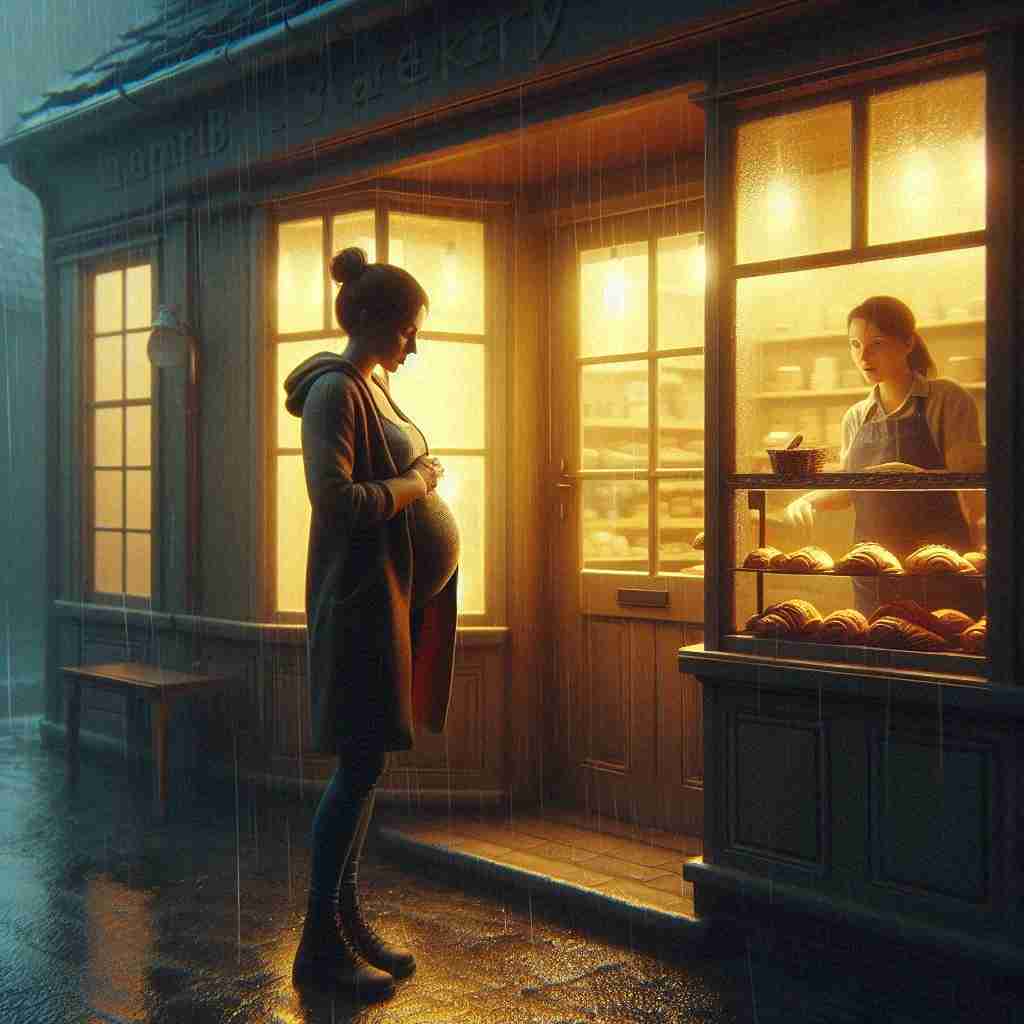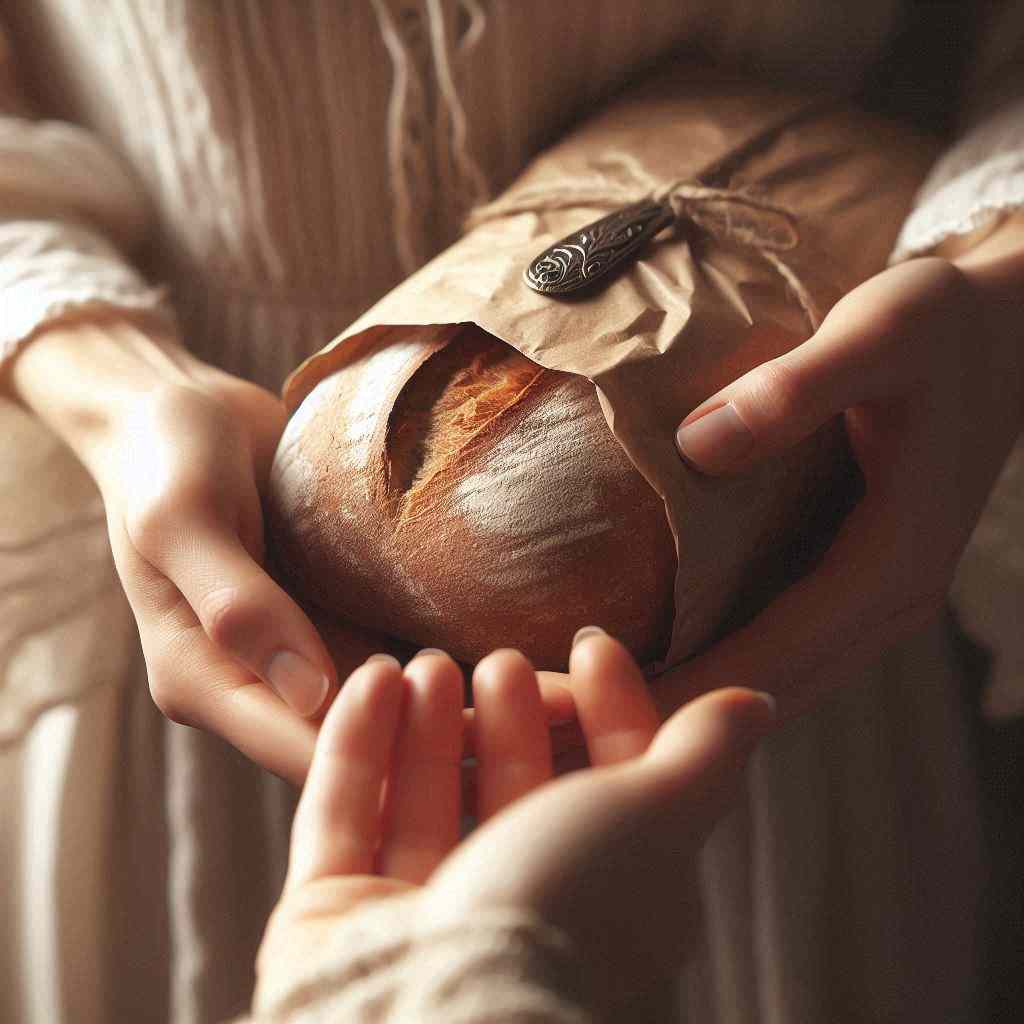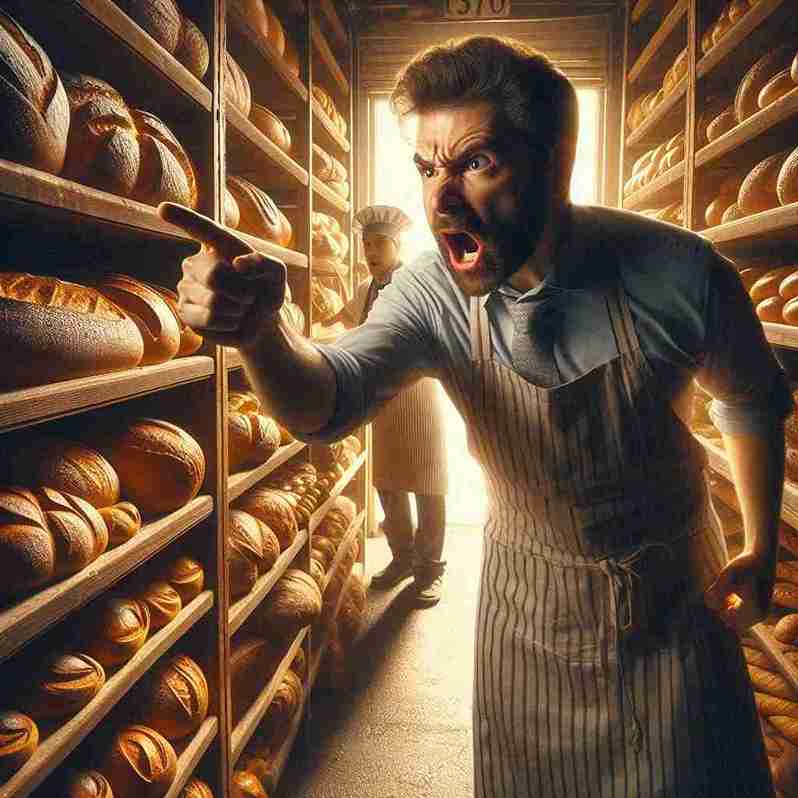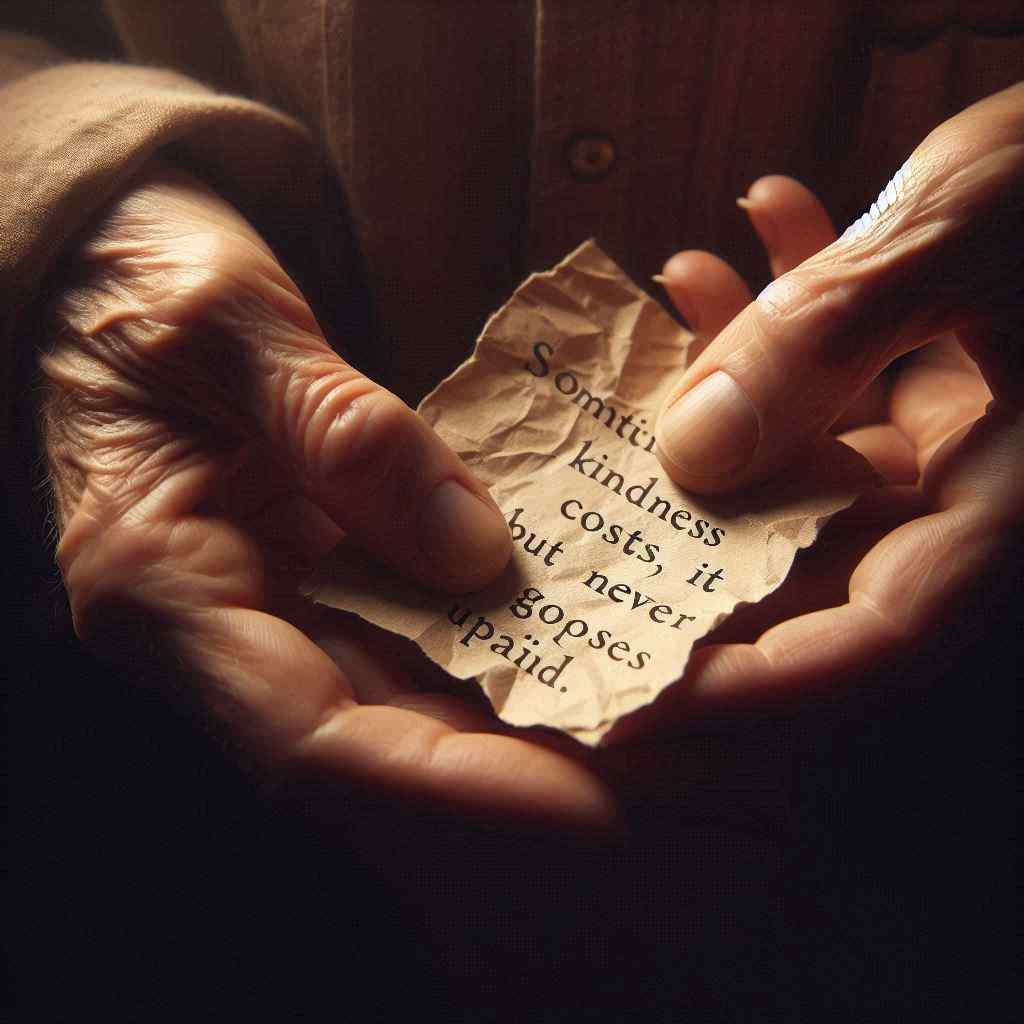The morning the pregnant woman walked into our bakery, the sky was the color of wet cement — heavy, tired, undecided. It wasn’t the kind of day that promised anything good. And honestly, I needed a good day. My hours had been cut, bills were stacking up, and every step I took felt like walking deeper into a fog I couldn’t find the edge of.
The bell above the bakery door chimed softly, and I looked up from the register. A woman entered slowly, her hands cupped around her belly as though she were trying to shield her child from the chill outside. Her clothes were worn, her hair pinned loosely with a cheap metal clip, and the exhaustion on her face was a kind I recognized — the kind that comes from life pushing harder than you can push back.

She hesitated before approaching the counter, like she wasn’t sure she was welcome.
“Can I… can I have a loaf of bread?” she asked, her voice barely above a whisper. “I don’t have any money, but I’m… I’m hungry.”
It wasn’t just the hunger in her eyes — it was fear, shame, and a quiet plea that made something twist inside me. She was doing her best to stand tall, but life had clearly chipped away at her strength.
I glanced back at the owner, Mr. Hale, a man whose heart was as dry as the day-old baguettes we sometimes threw out. His eyes narrowed, warning me.
But I couldn’t. I just couldn’t turn her away.
“I’ll get you a fresh loaf,” I said softly. “Still warm.”

She blinked — shocked — as if the smallest kindness was a language she hadn’t heard in a long time. When I handed her the loaf, she held it like it was something sacred. Then she reached up, removed the metal hairpin from her hair, and placed it gently on the counter.
“You’ll need this one day,” she said.
Her voice was steady, but the words were strange. A hairpin? I smiled politely, not understanding, but she nodded as if she knew something I didn’t. Something important. And then she walked out, hugging the bread close to her.
“YOU’RE FIRED.”
The words cracked through the bakery like a whip.

Mr. Hale stood with his arms crossed, jaw clenched, eyes full of the kind of anger he reserved for moments when he felt someone had disrupted the neat little world he controlled.
“For giving a loaf of bread to someone who needed it?” I asked, stunned.
“For stealing,” he snapped. “Get out.”
There was no reasoning with him. I didn’t even try. Instead, I removed my apron, folded it, and left quietly — the metal hairpin resting in my pocket like a strange souvenir from a moment that had cost me my job.
Six weeks crawled by in a blur of rejection emails, unanswered applications, and hollow nights. My savings evaporated. Anxiety clung to me like a shadow. And still, I kept the hairpin in my pocket — not because I believed her words, but because it reminded me of the moment I chose kindness over fear.
One evening, while sorting through laundry, I decided to wash my old bakery apron, hoping it might be useful again if I got another service job. As I slipped my hand into the pocket, my fingers brushed something. A folded paper.
My stomach tightened.
I pulled it out slowly.
It was a letter. Neatly folded. I recognized the handwriting immediately. Hers.
With trembling fingers, I opened it.
“Sometimes kindness costs,
but it never goes unpaid.”
My breath caught. How long had it been sitting there? How had I missed it? And what did she mean? The message felt more like a warning… or a promise. A strange chill ran down my spine.

That night, sleep didn’t come easy.
The next afternoon, I walked aimlessly through the city, feeling more lost than ever. Then I saw it — a small café with warm lights glowing from the windows and a handwritten sign taped to the glass:
HELP WANTED – IMMEDIATE HIRE
My feet moved before my fear could stop them.
Inside, the café was bustling — the scent of fresh pastries and espresso wrapped around me like a hug. Behind the counter stood a woman with soft eyes and a firm posture. She looked like she’d lived enough life to recognize brokenness when she saw it.
“Can I help you?” she asked.
“I saw the sign,” I said. “I… I’m looking for work.”
She waited, expecting more.
So I told her my story — the bakery, the woman, the bread, the hairpin, the firing. By the time I finished, her eyes weren’t pitying… they were understanding.
“We value hearts here,” she said finally, “not just hands. Can you start tomorrow?”
I nodded, stunned. Relief washed over me so fast my knees felt weak.
Weeks slipped by, and for the first time in a long while, I felt… safe. The café was warm in a way the bakery never was — with regulars who remembered your name, coworkers who brought you soup when you were sick, and a manager who believed kindness wasn’t a flaw but a qualification.
One morning, while cleaning a table, I overheard two regulars whispering nearby.
“She finally got help,” one said. “That charity group stepped in just in time.”
“And the baby?” the other asked.
“She’s okay. They’re both okay.”
My heart froze. They were talking about her — the pregnant woman.

Hope rose in my chest like sunlight breaking through clouds. She was safe. Her child was safe. And somehow, that mattered to me more than I expected.
One month later, I walked into the café to find a small envelope sitting on the counter.
My name was written across the front.
I opened it with nervous hands.
Inside was a handwritten note:
“Your kindness helped me stand.
Now it’s my turn.”
Underneath was a café gift card. Enough to cover meals for weeks.
But that wasn’t what made my throat tighten.
It was the final line:
“Kindness travels.
Sometimes it just takes the long way home.”
I closed my eyes, overwhelmed.
The hairpin in my pocket felt heavier than metal — it felt like a reminder, a promise kept, a circle completed.
I didn’t know if I’d ever see her again. Maybe I would. Maybe I wouldn’t.
But I understood one thing with absolute clarity:
Kindness doesn’t disappear.
It moves.
It finds its way back.
Sometimes when you need it most.
And that hairpin?
I carry it still — not for luck.
For faith.
In people.
In goodness.
In the simple truth that every act of kindness echoes… even if the echo takes the long way home.

0 Comments